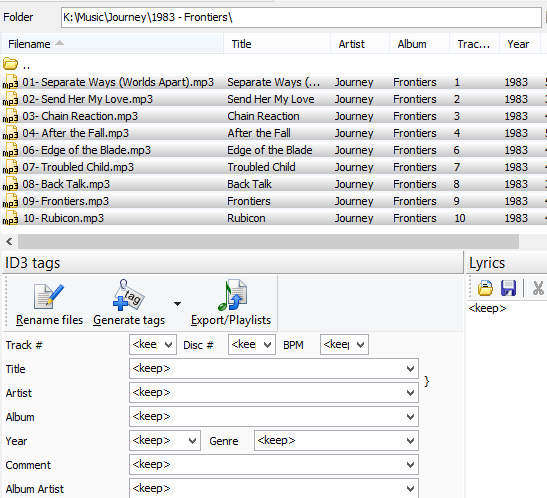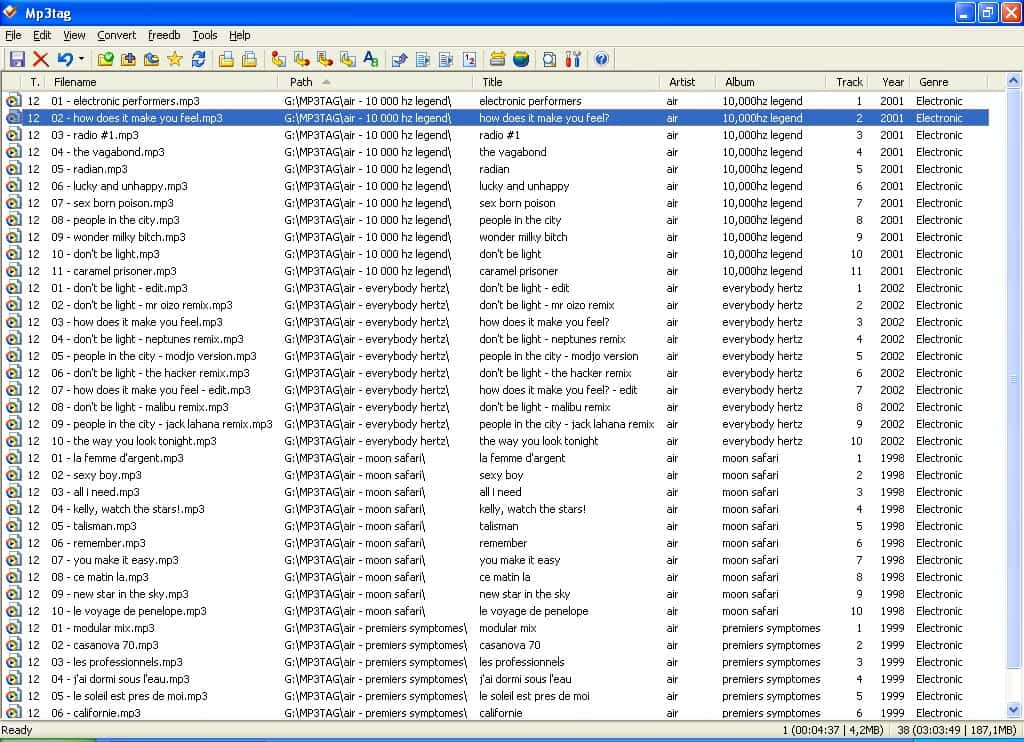

First, add the music from your iPod to your iTunes library on your Windows PC or Mac. On both platforms, click the Devices tab and check the Prevent iPods, iPhones, and iPads from syncing automatically box.Īfter transferring the music from your iPod to your computer, you can start making adjustments.
#Mp3tag 4 digit year for mac#
Note that iTunes for Mac requires macOS version 10.13.99 or earlier.

The method for preventing iTunes from automatically syncing with your iOS device is mostly the same for Windows and Macs running Mojave or earlier: So if you connect an iPod to your computer, the music on the device will be overwritten with what's in your iTunes or Music library.
#Mp3tag 4 digit year download#
You cannot download music from an iPod (or iPhone or iPad) into iTunes or Music. When you connect a device to iTunes or the Music app, the music in your library automatically syncs to your device.

Prevent iTunes From Automatically Syncing With Your Deviceįirst, you'll need to make sure you can transfer the music on your iPod without iTunes or the Music app erasing it while syncing. Maximum value of counter of the last closed loop.Step 1. MD5-Hash of the audio part of the file (slow and only supported for ID3- and/or APE-only tagged files) Video bitrate for MP4/M4V/MKV video filesįile Name and Path Information PlaceholderĬurrent selection index of the file (ascending from 1)įile path with extension, relative to Export output file if output and track files are on same drive, else absoluteįolder path relative to Export output file if output and track files are on same drive, else absolute Set to 1 if the ID3v2 tag contains any of the unsupported ID3v2 framesĪdditional codec information (not available for all supported audio formats) Size of first cover art in the tag of the file in bytesĬover type of first cover art in the tag of the fileĬover height of first cover art in the tag of the file in pixelsĬover width of first cover art in the tag of the file in pixelsĬount of cover art in the tag of the fileĮncoding of the ID3v2 text frames of the file Mimetype of first cover art in the tag of the file Placeholderīits per sample (available only for some audio formats)ĭescription of first cover art in the tag of the file Technical information fields begin with an underscore %_ are read-only and may also be used in the File List, format strings, filters, and export configurations, but not in the Tag Panel. You can reference any supported field which is, e.g., listed in the extended tags dialog as FIELDNAME via a placeholder %fieldname%. Mp3tag supports flexible tagging, which means that the names of the tag fields are not fixed. You need to put the single quote around these reserved characters if you want to use them unparsed. If you want to output this character please mask it with an extra one ''. This will output the contained string and ignore all reserved characters. An example use case is creating disc subfolders: results in CD1\ if DISCNUMBER is 1 or an empty string if it’s not filled. The contents of brackets are displayed only if at least one of the placeholders used inside the brackets has been found. If you experience some unexpected behavior when using format strings, check if some of the rules listed below apply. Some characters have special functionality in generating format strings and need to be treated with extra care. Generating format strings can be combined with scripting functions. Generating format strings are used to create new strings, e.g., file names when renaming, field contents when formatting tag fields, data when exporting, but also file names for playlists or cover images that are parameterized with tag contents. Matching format strings are used for simple pattern matching of existing strings, e.g., file names to import tags from or lines in a text file that describe tag contents to be imported. A format string is built of either standard text (e.g., Music), placeholders (such as %artist%, %title%, …), or backslash characters \ that usually denote directory structures (optionally starting with a drive specifier e.g., D:\).įormat strings are used in two ways in Mp3tag, matching format strings and generating format strings. Mp3tag uses format strings in various of its features to describe the structure of file names and imported data.


 0 kommentar(er)
0 kommentar(er)
